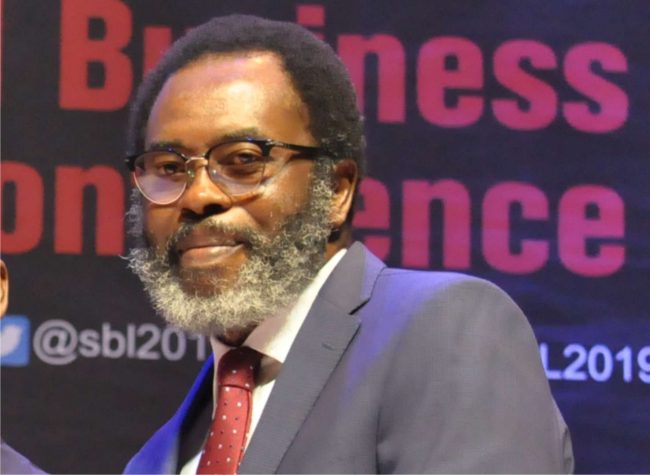

The Lagos State Government has dragged the Attorney General of the Federal and Minister of Justice, Abubakar Malami (SAN) and the National Assembly before the Supreme Court to test the constitutionality of Virtual Court Hearings.
In a suit filed through the state’s Attorney General and commission of Justice, Moyosore Onigbanjo (SAN), Lagos is asking the apex court to determine whether having regard to Section 36(1), (3) and (4) of the 1999 Constitution [as amended] use of technology by remote hearings of any kind, whether by Zoom, Microsoft Teams, WhatsApp, Skype or any other audio visual or video-conference platform by the Lagos State High Court or any other Courts in Nigeria in aid of hearing and determination of cases are constitutional.
The Plaintiff also wants the Supreme Court to determine whether in view of the powers conferred on the Chief Judge of a State under Section 274 of the Constitution, and in particular, the Chief Judge of Lagos State having exercised such power to regulate the practice and procedure of the High Court of Lagos State through the issuance of Practice Directions for Virtual Hearings dated 4th and 15m May 2020, the National Assembly, can usurp the powers of the Chief Judge of Lagos State under Section 274 of the Constitution by commencing the process for the amendment of Section 36(3) and (4) of the Constitution to include virtual or remote hearings?
The state is further seeking a declaration whether having regard to Section 36(1), (3) and (4) of the Constitution of the Federal Republic of Nigeria 1999, [as amended ](hereinafter referred to as the Constitution) use of technology by remote hearings of any kind, whether by Zoom, Microsoft Teams, WhatsApp, Skype or any other audio visual or video-conference platform by the Lagos State High Court or any other Courts in Nigeria in aid of hearing and determination of cases are constitutional.
Read Also: Senate Introduces Bill To Legalise Virtual Court Proceedings
“In view of the powers conferred on the Chief Judge of a State under Section 274 of the Constitution, and in particular, the Chief Judge of Lagos State having exercised such power to regulate the practice and procedure of the High Court of Lagos State through the issuance of Practice Directions for Virtual Hearings dated 4th and 15m May 2020, the 2nd Defendant, can usurp the powers of the Chief Judge of Lagos State under Section 274 of the Constitution by commencing the process for the amendment of Section 36(3) and (4) of the Constitution to include virtual or remote hearings?
“Alternative to Question 2 above, whether the Practice Directions for Virtual Hearings dated 4th and 15th May, 2020 issued by the Chief Judge of Lagos State pursuant to his powers under Secion 274 of the Constitution, is constitutional having regards to the provisions of Section 36(3) and (4) of the Constitution which enjoins court proceedings to be in public.
“If the answer to the question 3 above is in the affirmative, whether the 2nd Defendant should continue with the process aimed at triggering the amendment of Section 36 (3) and (4) of the Constitution and putting various State Houses of Assembly to the rigour of embarking on debating the issue of the Constitutional amendment?
WHEREOF, the Plaintiff claims against the Defendants as follows:
“A Declaration that the extant provisions in the Constitution, especially Sections 36 (3) and (4) are adequate to accommodate Virtual or remote hearings of any kind whether by way of Zoom, Microsoft Teams, WhatsApp, Skype, or any other audio visual or video-conference platform as provided for in the Practice Directions issued by the Chief Judge of Lagos State dated 4th and 15th May 2020.
“A Declaration that in view of the powers donated to the Chief Judge of a State under Section 274 of the Constitution, and the Chief judge of Lagos State having exercised such power to regulate the practice and procedure of the High Court of Lagos State through the issuance of Practice Directions for Virtual hearings dated 4th and 15th May 2020, the 2nd Defendant cannot usurp the powers under Section 274 by commencing the amendment of the Constitution to include virtual or remote hearings.
“A Declaration that it is not within the legislative competence of the 2nd Defendant or any other body, person or authority whatsoever” to make laws or otherwise amend the Constitution for the regulation of the practice and procedure of the courts of Lagos State having regard to Section 274 of the Constitution.
“A Declaration that the Practice Directions dated 4th and 15th May 2020 issued by the Chief Judge of Lagos State, pursuant to Section 274 of the Constitution is constitutional having regard to Section 36 of the Constitution.
“A Declaration that the Bill presented before the 2nd Defendant seeking to specifically include remote hearing in the Constitution constitutes a usurpation of judicial function.
GROUNDS FOR THE RELIEFS SOUGHT
“By Section 274 of the Constitution. the power to make procedural rules to govern proceedings in the courts of the States of the Federation, including Lagos State, is vested in the Chief judges of the States of the Federation.
“By the provision of Section 6(1) and (2) of the Constitution judicial powers are vested in the Courts established under the Constitution and it is the primary
responsibility of Court to interpret Constitutional Provisions.
“The effect of the 2nd Defendant’s attempt to amend the Constitution to provide for remote and virtual hearings is to declare that the virtual and remote hearings held to date are unconstitutional. A position which only Courts of law can take.
“The Constitution in Section 36 provides for fair hearing in civil and criminal matters within a reasonable time and that the proceedings of court in such matters shall be “in public”.
In a 45 paragraphs affidavit sworn to by a State Counsel in the Ministry of Justice, Lagos State, Oluwayemisi Osisanya, she claimed that following the outbreak of Coronavirus Covid-19 pandemic which practically halted judicial proceedings in Courts in Lagos, the National Judicial Council (NJC) issued Guidelines on 7th May 2020 to aid the dispensation of justice in Nigeria.
She further averred that pursuant to the provisions of Section 274 of the Constitution of Federal Republic of Nigeria, 1999 (as amended) the Chief Judge of Lagos State issued Practice Directions to accommodate virtual or remote hearing.
Osisanya also stated that, the term “in public” as provided for in Section 36(3) and [4) of the Constitution is wide enough to accommodate virtual or remote hearing by way of Zoom, Microsoft: Teams, WhatsApp, Skype or any other audio visual or video conference platform.
“The amendment process of the 2nd Defendant is threatening / disrupting the smooth running of the judiciary in Lagos State and the administration of justice on account of the uncertainty being created by the amendment process.
“I know as a fact that the bill presented to amend the Constitution must pass through the rigorous procedure for amendment of the Constitution including securing two-thirds votes of members of the 2nd Defendant and two-thirds votes of 36 State Houses of Assembly.
“I am also aware that the procedure for altering the provisions of the Constitution as stipulated in Section 9 [2] of the Constitution is cumbersome and may take a considerable period of time.
“The procedure to amend the Constitution by the 2nd Defendant has created apprehension in my mind that the decisions reached in proceedings conducted via virtual hearing Will be set aside as unconstitutional given the legislative exercise of the 2nd Defendant.
“I have been informed by the Attorney General of Lagos State at a working session on 29 May 2020 in the Attorney General’s Chambers at about 11am and l verily believe him that the Attorney General fears that this amendment is impacting negatively on the economy of Lagos State as determination of commercial disputes as well as criminal matters are being delayed and this has affected the administration of justice in Lagos State.
“The Constitution is an organic document that should be interpreted broadly as held by this Court in MARWA V. NYAKO (2012] 6 NWLR (Pt. 1296) 199 where this Honourable Court held that “while the language of the Constitution does not change, the changing circumstances of a progressive society for which it was designed can yield new and further import of its meaning”.
“I know as a fact that divergent views on whether or not virtual court proceedings are in compliance with Sections 36(3) and (4) of the Constitution and Section 200 of the ACJL has caused the Plaintiff to become apprehensive in respect of the validity of the virtual proceedings conducted pursuant to the Practice Direction issued by the Chief Judge of Lagos State.
“I know as a fact that the Plaintiff is worried that the effect of the steps being taken by the 2nd Defendant to amend sections 36 [3) and (4) of the Constitution would be to render virtual proceedings conducted pursuant to the Practice Directions issued by the Chief Judge of Lagos State as unconstitutional. Because this would mean that every virtual hearing conducted prior to the amendment was unconstitutional.
“I know that a pronouncement by this Honourable Court with regard to the proper interpretation of the provisions of the Constitution of the Federal Republic of Nigeria, 1999 (as amended) as it relates to the power of Courts to conduct virtual or remote hearing proceedings will assist in resolving this issue.
The Supreme Court is yet to fix a date for the hearing of the matter.






















